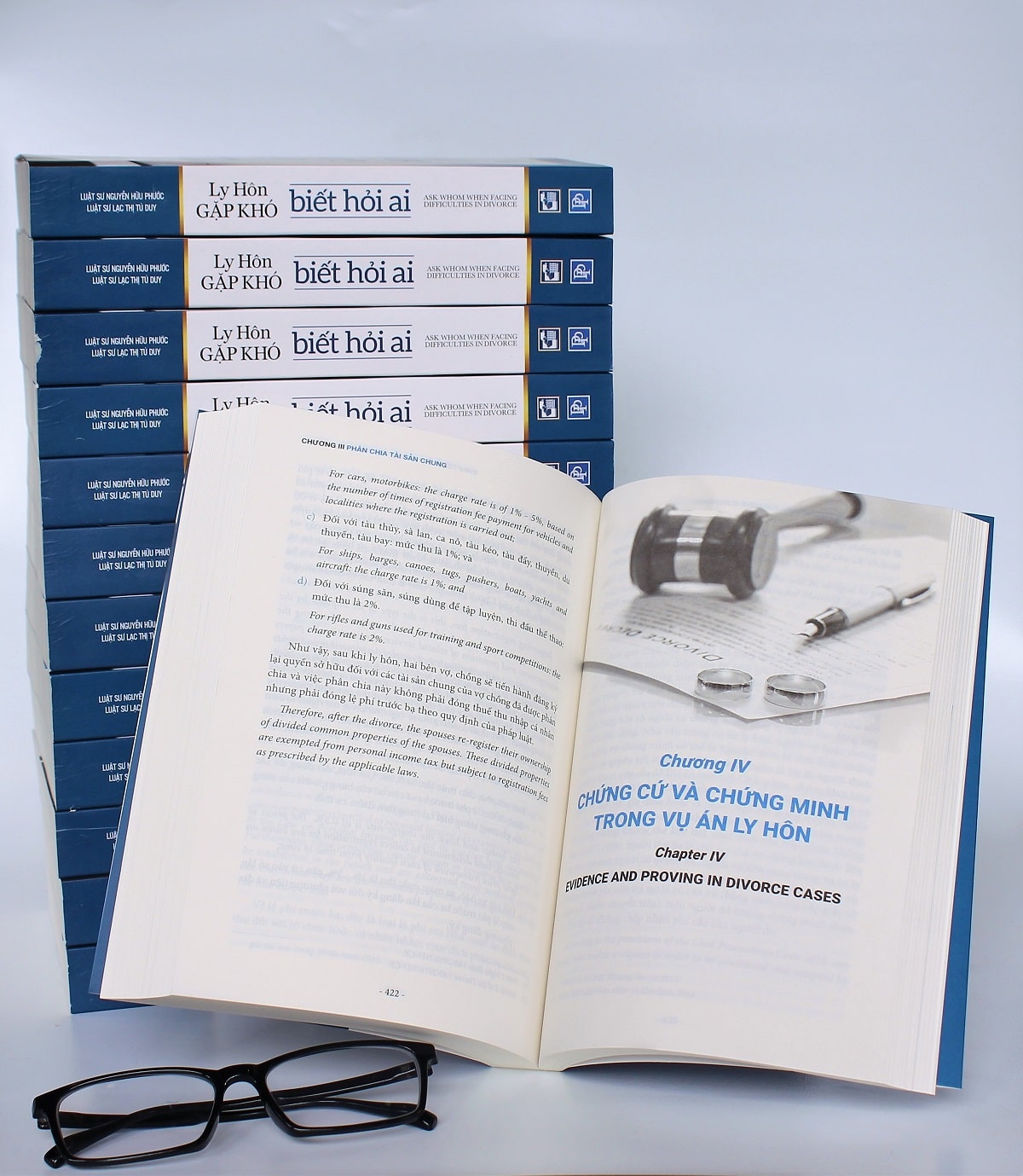In a divorce case involving foreign element such as husband or wife being a foreigner who can communicate in Vietnamese, is an interpreter required under the Vietnamese law?
According to the current Civil Proceedings Law, the written and spoken language used during the resolution of a civil case shall be Vietnamese. The people participating in civil proceedings are entitled to use their native written and spoken language, in which case an interpreter shall be required[3]. According to a definition set forth in the law on civil proceedings, an interpreter is a person who is capable of translating another language into Vietnamese and vice versa in cases where a person participating in the proceedings cannot use Vietnamese[4]. Thus, if the husband or the wife is a foreigner who can communicate in Vietnamese during the resolution of a case, an interpreter shall not be required.
In practice, however, the situations requiring usage of Vietnamese have been stipulated in the Civil Proceedings Code unclearly. In a number of other sectors, including but not limited to medical examination, and medical treatment, any foreigner selecting Vietnamese to be used in medical examination and treatment activities shall have a Vietnamese proficiency certificate granted by an educational institution with the proper function. Leaving the provisions on this matter has resulted in the inconsistent application in cases where a foreigner in the spouses can use Vietnamese and decide that he or she does not need an interpreter at the trial hearing. In the case the Court has not requested the participation of an interpreter, if the wife or the husband being foreigner is unable to provide evidence to substantiate his or her capability to use Vietnamese, even though he or she can communicate in Vietnamese, once a judgement was rendered by the Court, the fact that such foreigner by any reason does not speak Vietnamese anymore will result in that litigant being unable to use Vietnamese with no interpreter presence. As a consequence, the case will be more complex. Thus, if one of the spouses has a foreigner as his or her spouse who can communicate in Vietnamese but that this person has no qualification certifying that he or she can use Vietnamese, it is preferable for the other spouse to request an interpreter or submit a request to the Court to have an interpreter in order to avoid the rise of complications after issuance of the Court judgement.
Who shall bear the expenses of the interpreter? Who shall be entitled to select the interpreter?
Expenses of the interpreter shall be borne by the requester unless otherwise agreed by the husband and the wife. In cases where the Court requests the interpreter to be present at the Court, expenses for the interpreter shall be borne by the Court[7]. The interpreter shall be selected by the husband, the wife or both of them, and needs to be approved by the Court. Additionally, the interpreter may also be directly requested to translate by the Court[8].
Can either the husband or wife change his or her interpreter?
The husband or wife shall have the right to request the replacement of the interpreter in accordance with the provisions on the Civil Proceedings Law[11]. The interpreter shall be replaced in any of the circumstances set forth below[12]:
- The interpreter is also an involved spouse, a representative or the relative of a litigant;
- There are grounds for believing that the interpreter cannot be objective in performing his or her duties;
- The interpreter has participated in the same proceedings as a person protecting the lawful rights and interests of the spouses(s), witness, or expert witness; or
- The interpreter has conducted the same proceedings as a Judge, a Juror, a Verifier, a Court Clerk, a Prosecutor or a Controller.
When there is a request for the replacement of an interpreter, the Council of Adjudicators shall conduct their examination and decide according to the proceedings provided by the Code of Civil Proceedings 2015. The Council of Adjudicators may or may not accept the request. In the case where the Council of Adjudicators denies the request, they shall specify the reasons of refusal[14].
Prior to the commencement of a trial, if the spouses consider that an
interpreter’s expertise does not guarantee accuracy, the spouses shall have the
right to request the Judge who
is assigned to resolve the case to replace such an interpreter. The Judge shall
report to the Chief Justice immediately for considering whether there are grounds
for the replacement of such an
interpreter. If the Chief Justice considers that there are
grounds for the replacement of such an interpreter, the Chief Justice shall issue a decision
on the replacement of the interpreter. If
the request is not accepted, the Chief Justice shall declare in writing the reasons of non-acceptance.
[3] Article 20 of the Civil Proceedings Code 2015.
[4] Article 81 of the Civil Proceedings Code 2015.
[7] Article 168 of the Civil Proceedings Code 2015.
[8] Article 81.1 of the Civil Proceedings Code 2015.
[11] Article 70.14 of the Civil Proceedings Code 2015.
[12] Article 82.2 of the Civil Proceedings Code 2015.
[14] Article 240 of the Civil Proceedings Code 2015.
If you would like more information on how we can assist you with divorce issues, please contact us at: +84 (28) 36223522 or email us at info@phuoc-partner.com

